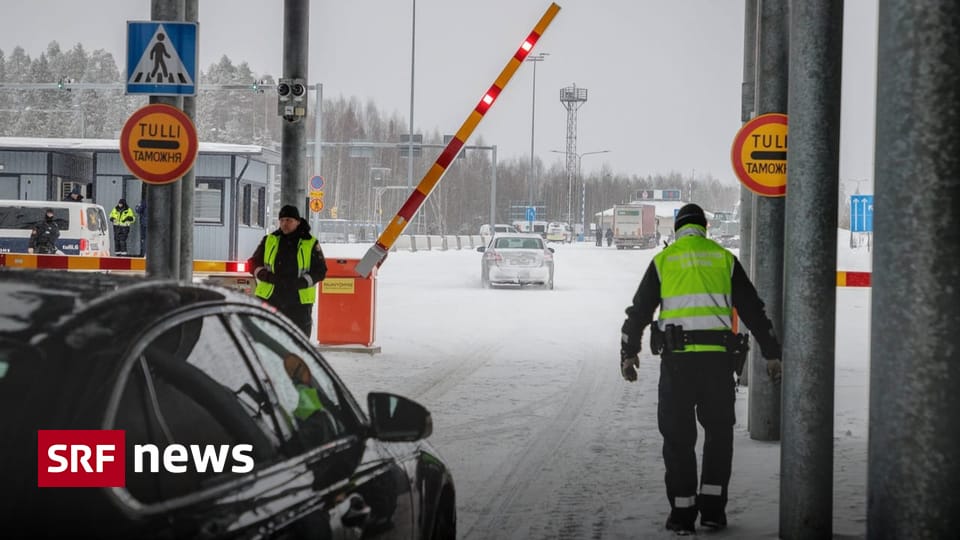1/6
“Switzerland has to adapt to the rest of the civilized world,” says Bill Browder.
The Council of States often meets away from the world audience. But next week, it will be a little different: When the small room debates whether the federal government can independently impose sanctions on states or people who violate human rights, Washington listens intently. Bill Browder, 58, a London-based businessman and activist, is also looking forward to Bern.
At the moment, Switzerland only accepts sanctions from the United Nations or the European Union, but does not take any measures of its own. Browder finds the situation unbearable: “Switzerland is a sovereign country, not an offshoot of the European Union or the United States. She can make her own decisions.” If she does not, things may soon become uncomfortable, he warns in advance.
Now, Browder is not a wealthy Briton who has a great deal of anger in his stomach once Switzerland is mentioned in general and neutrality in particular. Born in America, he considers himself a spearhead in the international struggle for human rights and the fight against money laundering. A very personal campaign, which became even more important with the Russian attack on Ukraine.
Because Browder suffered from the rigors of the system himself. Soon after the end of the Soviet Union he moved to Russia. Business was booming in the eastern 1990s. But when he began denouncing cases of corruption and money laundering, the tide turned. Under Vladimir Putin, called the autocratic state, Browder was declared persona non grata and soon could no longer enter Russia. His colleague Sergei Magnitsky was less fortunate. He died in Moscow in November 2009 after months of brutal imprisonment. He was killed, that’s a Bill Browder fix.
A security risk to Switzerland?
At that moment, the financier turned into a political lobbyist. His books, in which he indecently calls himself “Putin’s Public Enemy No. 1”, are bestsellers. His word has weight in Washington. At his urging, the US Congress passed the Magnitsky Act in 2012, imposing penalties on individuals associated with the case and freezing dozens of accounts. The European Union and other countries followed suit. Today, the Magnitsky Act is considered a blueprint for international punishment of human rights violations in dictatorial regimes. The law paved the way for US sanctions against China when human rights abuses against the Uyghur minority became public.
This is the measure that Browder believes. He doesn’t bother with the minutes.
“Switzerland has to adapt to the rest of the civilized world when it comes to money from tyrants and money launderers,” he said in an interview with Blake on Sunday. “No MP will lose a single vote by upholding a law that allows for the punishment of corrupt and human rights violators.”
In June, things were still looking good for the reform advocates. The National Assembly established a similar clause in the Prohibition Act. The Council of States is likely to oppose itself on Monday. Both the Foreign Policy (APK) and the Security Policy Committee (SiK) have spoken out against it. SiK warned in a joint report that an independent sanctions policy “would be highly problematic with regard to the rule of law and impartiality and would pose a security risk to Switzerland”. Everything that serves the economic interests of Switzerland falls under the heading of neutrality. This does not appear to be an ethical decision,” Browder criticizes. He does not accept that Switzerland has long imposed sanctions on Moscow. A very small share of Russian assets was blocked in Swiss banks. In fact, only a fraction of accounts worth more than 200 billion francs are frozen, according to Bankers Association figures.
“On the best path to a neo-Nazi gold scandal”
Penalties against these funds and their owners are mandatory for browsers. If Parliament refrains from doing so, “it would be a signal to the Russians that Switzerland is still a safe haven for their dirty money.” Then Switzerland will become a problem for the Western world and efforts to cut off Putin’s financial resources. “Switzerland should take sides. If it says it is neutral, it is on Putin’s side.”
In the spring, the so-called Helsinki Committee of the US government cracked down on the federal government. This shouldn’t be the last time. Roger Wicker, a Mississippi Republican and committee member, wants to continue. “Senator Wicker is on the warpath,” Browder says. He added, “He intends to do more to hold Switzerland and Russia accountable for money laundering.” Wicker announced this to him recently. If Switzerland continues this policy of “neutrality”, it is on its way to a neo-Nazi gold scandal.
It is doubtful that the dispute over sanctions and neutrality will reach this international dimension. What is certain is that Browder and his comrades-in-arms will not give up so quickly. Or, as Bill Browder describes his mission: “There is no point at which I can say I am done.”
Soon you will hear from him again in Bern.

“Tv specialist. Friendly web geek. Food scholar. Extreme coffee junkie.”





More Stories
Immigration policy in Finland: returns at the border with Russia – News
Italy: State broadcaster RAI in crisis over Meloni – News
North Korea has a new (propaganda) song, sorry sausage